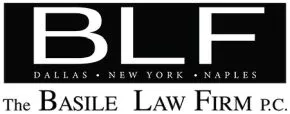Our law firm is known for taking the position that fixed discount convertible notes used to finance small underfunded public companies violates New York's criminal usury statute and are void under New York law (as well as the state usury laws of Texas, Massachusetts, Florida and Illinois) on behalf of our many small OTC Markets company clients.
Two of the highest courts in New York, the United States Court of Appeals for the Second Circuit (federal court) as well as the New York Court of Appeals (state court), have agreed with us that certain aspects of New York's criminal usury laws apply to some convertible promissory notes. After no less than 11 lower federal court decisions against our clients' positions premised solely on non-binding dicta, on appeal, the Second Circuit certified 2 questions concerning New York state's usury laws to the New York Court of Appeals, New York State's highest court. On October 14, 2021, in interpreting its usury laws, the New York Court of Appeals agreed with all of our positions indicating a "conversion discount" on a floating price convertible note (a fixed discount percentage to market) is interest, and if that charge added to the notes stated interest rate and other interest charges exceeds 25%, the note is criminally usurious and void ab initio. See Adar Bays, LLC v GeneSYS ID, Inc. decided October 14, 2021, 37 N.Y. 3d 320
Our firm had advocated for courts to review these legal issues for well over 5 years. Several Federal Appellate court cases, as well as lower Federal District Court cases, and some state cases in New York are applying Adar Bays to interesting cases, from Federal RICO violations to convertible note enforcement.
We believe 1,000's of New York residents (and 10's of thousands of small microcap company investors across the country) who have invested their money into small public companies may have been financially hurt (in some cases ruined) when these lenders drive down the price of the stock in order to take advantage of the extreme fixed discounts on stock that they use to force these companies to pay off their loans. Many of these small public companies are also New York businesses that were preyed upon by these lenders. Both the merchant funding businesses and the unregulated public company private lenders previously "fooled" their victims and confused some judges by mischaracterizing their loans as either a purchase of future receivable or investments rather than what they are, loans. While the group of loan-shark merchant funders have hurt numerous New York and other businesses across the country, the loan-shark unregulated public company lenders have not only hurt thousands of businesses, but 10's of thousands of individual investors as well. While the U.S. Securities and Exchange Commission has just started to get around to prosecuting civilly some of these types of funders based on violations of securities laws, the majority of funders, most of which operate out of New York, have not yet been subject to suit by a federal or state government agency.
While actual real purchases of receivables, as well as fixed price convertible loans are mostly legitimate business transactions where the lender "bears a real risk of not being repaid", many of these types of lenders have carefully crafted their documents to provide absolute repayment disguised by language that appears to create risk. Meaning, the transactions are really loan's subject to usury laws. As financial transactions becomes more complex, it is easier for a lender to hide the transactions true intention, that of a loan that charges a usurious rate of interest.
The New York Attorney General's Office has been very active in protecting residents and businesses by bringing to light the abuses of its' residents by such lenders that offered "payday" type loans and the New York Attorney General has successfully applied NY's usury laws to protect the public against those lending practices making the citizens of this state safer. See https://ag.ny.gov/press-release/2013/ag-schneiderman-sues-western-sky-financial-and-cashcall-illegal-loans-over
The Attorney General's recent focus on certain Merchant Funders is a great next step towards protecting the public, but should it stop there?
A simple review of the 3-dozen toxic convertible note lenders operating out of New York that loan hundreds of small public companies millions of dollars a year, yielding hundreds of millions of dollars in profits should provide examples of the same types of practices that some merchant funders have been getting away with for years. In both types of schemes, the borrower's repayment obligations are absolute and the mechanisms these lenders use to force repayment are compulsory, whether through direct bank account debits or forced stock conversion's, resulting in actual interest rates exceeding 2,000 % in some cases. A violation of New York's criminal usury statute is an actual crime wherein everyone involved in the chain of those crimes from the lenders side can face civil and criminal repercussion. New York Penal Law §190.45 makes it a Class A misdemeanor for any person to be in possession of a usurious loan record when, with knowledge of its contents thereof, he possesses any writing, paper, instrument or article used to record criminally usurious transactions prohibited by section 190.40. This may also create liability for transfer agents who willfully, and for a fee, process stock conversions based on a criminally usurious loan. A violation of the criminal usury laws in New York is by definition a criminal act. (Penal Law 460.10(1)(a)) and is a Felony.
The New York Attorney General announced in 2014 that it settled a case against a well-known debt collection law firm that had filed collection actions against consumers arising out of payday loans. The Attorney General claimed that the firm attempted to collect on payday loans, which are illegal under New York law. (New York General Obligations Law Section 5-501 and Banking Law Section14-A provide that loans of $250,000 or less with an interest rate of at least 16 percent are usurious. Loans with rates exceeding 25 percent are criminally usurious.)
The law firm had claimed that it was "unaware" that these consumer debts arose out of payday loans and that it ceased collection actions after receiving notice from the Attorney General. The AG rejected this defense explaining that"debt collection firms must make certain that the underlying loan is not a payday loan (illegal) before filing a lawsuit, and they will be held responsible if they fail to do so. Ignorance is no excuse." It's not a far stretch to consider that attorneys that represent certain merchant funders and toxic convertible note lenders that commence aggressive collections actions on what are illegal contracts may be subjecting themselves to tremendous liability.
Several of these "toxic lenders" have also provided merchant funding type loans to several small underfunded pubic companies. The crossover from an alleged "investment" to a purchase of "future receivables" is no accident. It's common for these lenders to use a small public company's stock to repay themselves (forced conversions at discounts in excess of 35%) when the company is pre-revenue or has limited revenues. The fixed rate discount is applied to each conversion of principle and interest into stock no matter when it is done and no matter where the company's stock price is trading guaranteeing repayment of the loans with property at usurious interest rates via discounting, sometimes by more than 54%. This results in the value of the stock that is being forced to be issued to the lender is 54% more in value than the amount of the debt being repaid, every single time the lender converts its debt. It's a guaranteed return of value that is in the exclusive control of the lender through various loan contract provisions designed to control how and when the loan is repaid. However, if a company has substantial revenues, some of these lenders opt to make the transaction a purchase of "future receivables", crossing into merchant funding territory. These lenders just switch the repayment method from stock to direct account debits. Either way, the transactions are usually designed to 1) skirt the states usury laws by calling the transaction something that it is not, and 2) charging interest rates in excess of 25% (in some cases well over 2000%).
The New York usury statutes, as well as court created law, require courts to completely and thoroughly examine each clause of a loan contract to determine the true character of the transaction. Financial instruments have become breathtakingly complex over the last decade, and the complexities of some of these transactions have been designed carefully by a small group of lawyers to seemingly circumvent state and federal laws. The unfortunate reality is that many small public companies, just like the businesses subject to merchant funding agreements, do not have the financial resources to fight back against enforcement attempts by the lender and are usually stuck with default judgements then execution on whatever little property they have left. Many of these companies face the same threats of immediate litigation to compel compliance of these unlawful agreements. Some even required confessions of judgments, personal guarantees and security interest's just like some merchant funding agreements. A loan-shark doesn't change its sharkskin.
The content of this article is intended to provide a general guide to the subject matter. Specialist advice should be sought about your specific circumstances.


